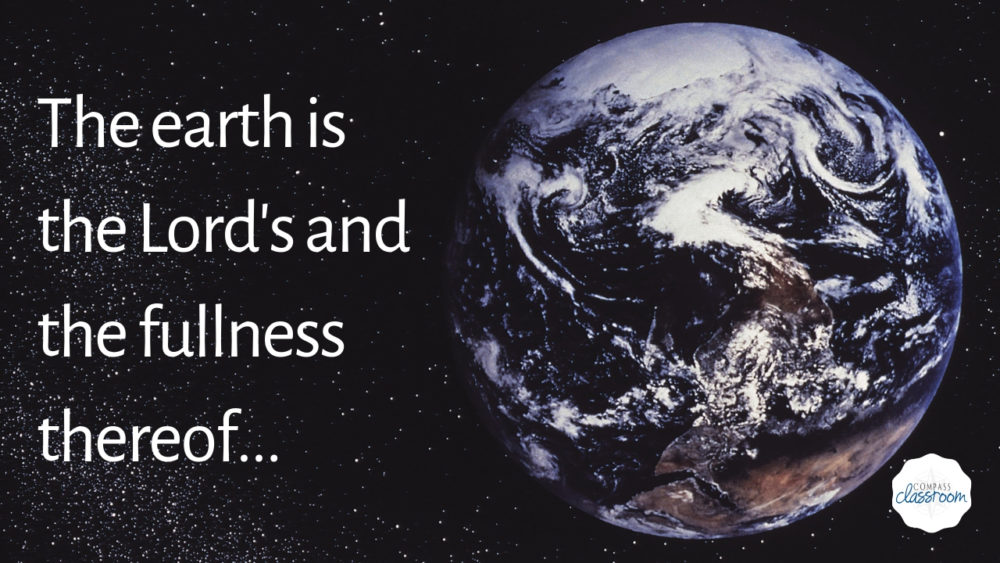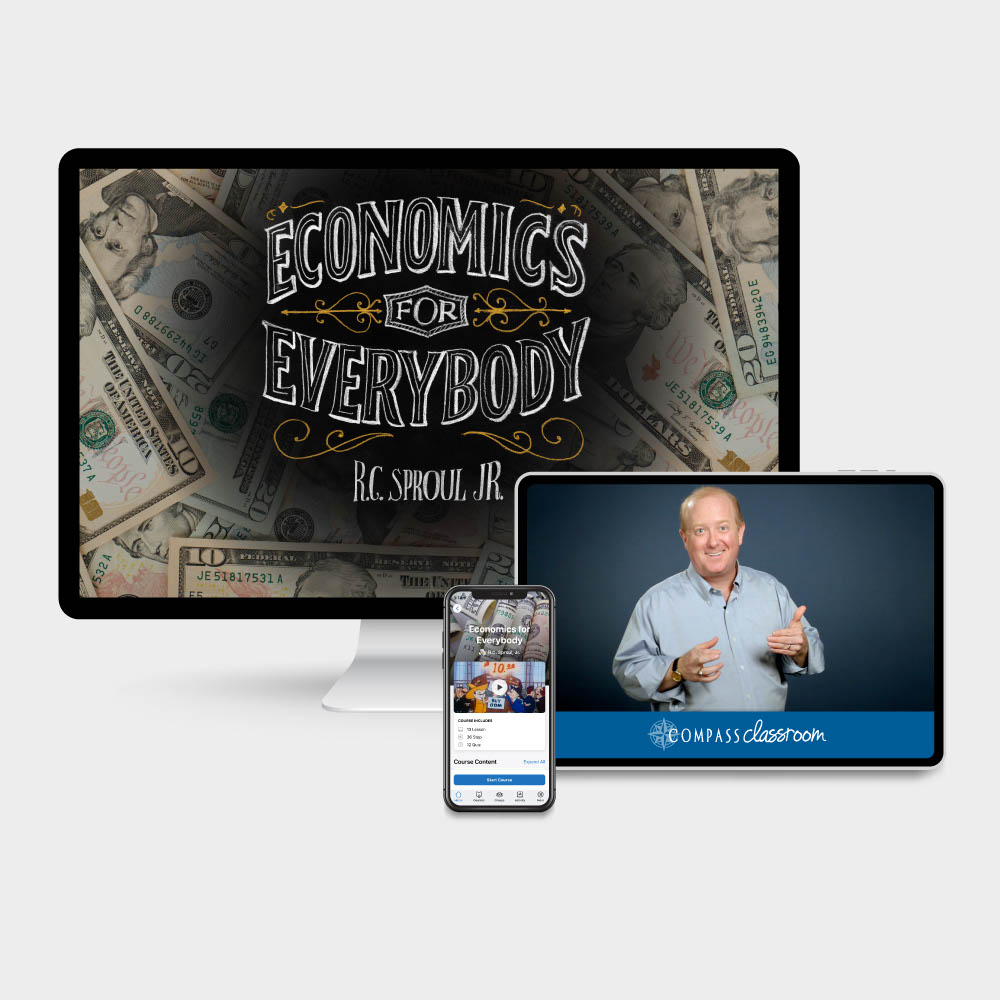
Share this post with another homeschool mom!

The earth is the Lord’s and the fullness thereof, the world and those who dwell therein, for he has founded it upon the seas and established it upon the rivers. (Psalm 24:1-2, ESV)
I think it took me two years to figure out how to understand economics. In hindsight, it wasn’t because economics was so difficult. It was because I didn’t know where to start.
At the time, when I looked at economics, I felt like I’d fallen into a big, multi-story maze. This may be how you feel when you look at economics. You know it’s important, but what is it really about? You probably wonder how you can teach something to your children that you don’t really understand yourself.
I have good news for you: you can understand economics, and you can teach it to your kids. You just have to know where to begin.
Unfortunately, there is a lot of bad thinking that passes itself off as “good economics.” It’s been happening for centuries. Smart men like Thomas Malthus, Karl Marx, John Maynard Keynes, Milton Friedman, and many others have made the same essential mistake when they started thinking about economics: they didn’t start with God.

Economics is About God’s Ownership
This may sound like a curious omission, but it ultimately leads to the undoing of all their thinking. Each of these men represents different economic systems that generally disagree with each other. The one thing they do agree about is that God has nothing to do with economics. This is a fatal flaw, since, after reading Psalm 24:1-2 above, you know that God’s ownership of the world is the most important principle of economics.
Put in more economic terms, the earth is God’s private property. He created it; He can do what He wants with it. This is actually a pretty simple concept for kids to grasp. In fact, God formed each of us to innately understand the ownership of private property. What do little kids say when they can first learn to talk about their toys? “Mine!” The concept of ownership is embedded in our DNA.
After all, God made Adam in His image.
In other words, Adam was a rational, intelligent, personal being who could own and control things. Look at what God tells him right after he made him: “Fill the earth and subdue it, and have dominion…I have given you every plant yielding seed that is on the face of the earth…” In next chapter, Moses tell us God put Adam in the garden “to work it and keep it.”
Economics is About Our Ownership
This brings us to the next principle of economics: God gave man the world to take care of it for him.
Again, in more economic terms, man is God’s steward or manager. He is supposed to follow the rather broad instructions God gave him in the garden. God is still the ultimate owner, but man is a sub-owner, working for God. This, too, is pretty easy for kids to understand.
What was Adam supposed to do in this world? Once he was married to Eve, he was supposed to create a family, who would, in turn, make more families. They would plant crops, raise animals, cut down trees, dig up iron, build houses, make cities, and worship God with music and art. Your children will get this – just ask them how many natural resources there are in the world and how many different ways there are to use them. Just look around – see what humans have made with what God created.
Economics is About Making Choices
All those things around us were made as a result of choices. Someone chose to take wood and make your dining room table instead of a bunk bed. The metal in your car could also have been used for aluminum foil. The paper of your Bible could have been used to make a newspaper. The point is this: everyone everywhere is making choices every day as to what they are going to do with the limited resources that they own or control.
Therefore, Economics is all about making choices.
Which brings us to a simple definition of economics: economics is man making choices as to how to best to use his limited resources in order to be a good steward before God.
Economics starts with God and ends with man. There is, however, a lot more to be said about man and economics. And kids can understand every bit of it.
Want to teach your kids Economics?
RC Sproul, Jr.’s consummate teaching is illustrated with hundreds of fun and interesting clips from old movies and cartoons. Learning economics is interesting and enjoyable with Economics for Everybody.
Learn More

Economics for Everybody
An insightful study of economic principles that links entrepreneurship with lemonade and Charlie Chaplin with supply and demand. Your homeschool student will develop an understanding of economic freedom, inflation, stewardship, and the roles of trade and markets.
Share this post with another homeschool mom!







